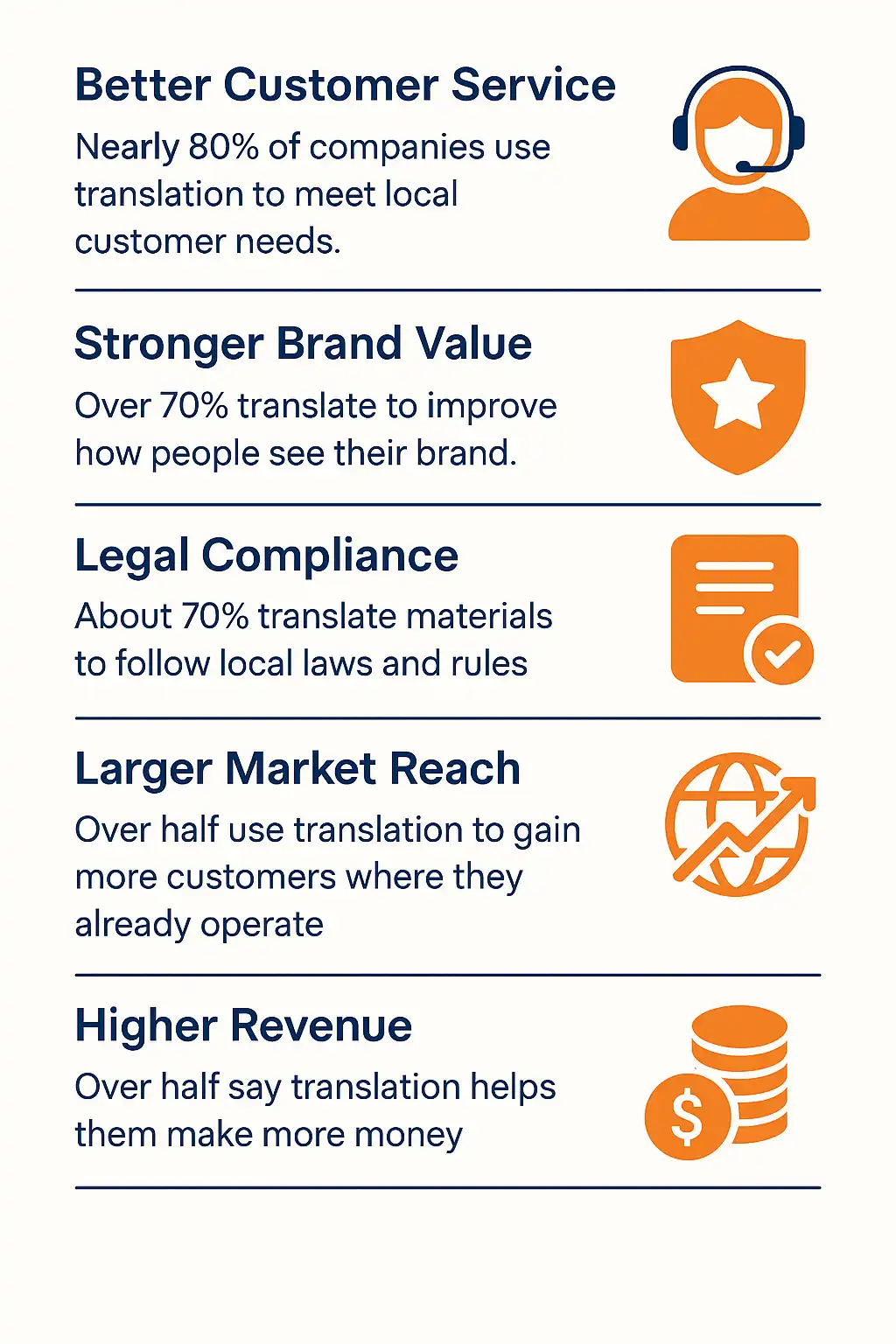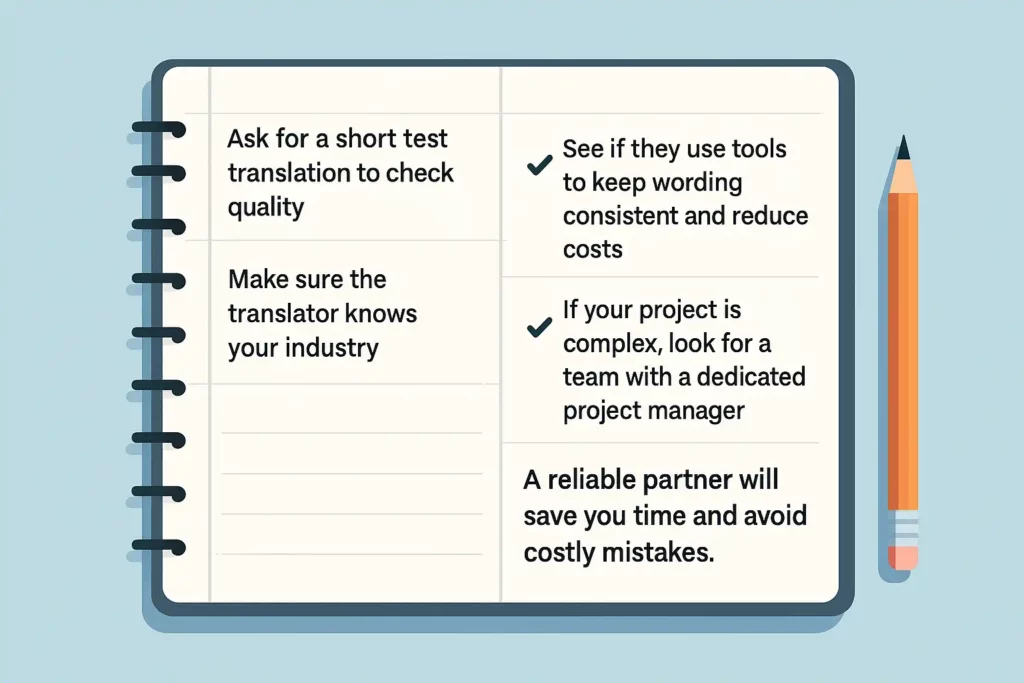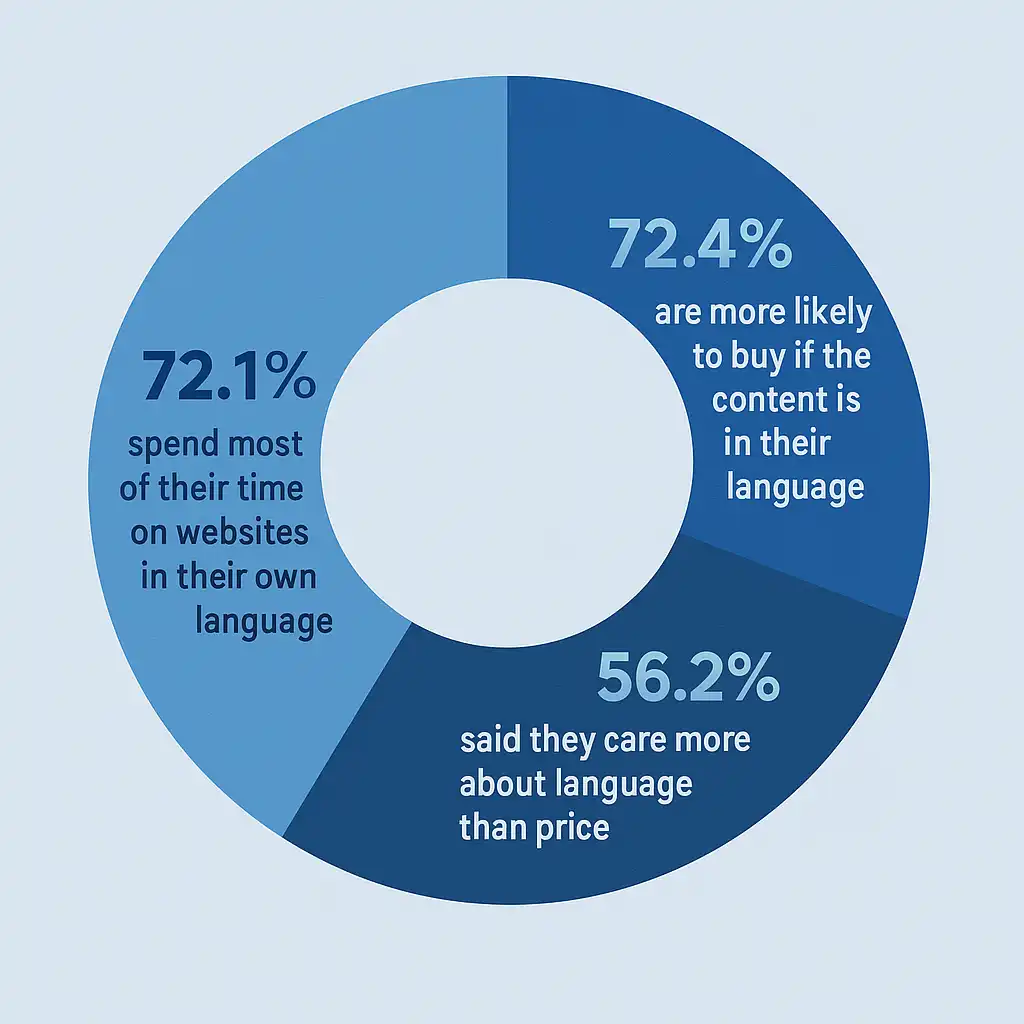Even if you’re just starting to grow your business internationally, understanding the value of translation is critical. In this article, we’ll break down why translation isn’t just a service—it’s a smart investment that helps companies grow faster, build trust, and reach more customers.
READ MORE: Selecting the Right Translation Agency in China For Your Business
1. Translation: A Simple First Step to Global Growth
Entering a new country doesn’t always require huge investments in offices or local staff. Often, the first and most effective step is simply translating your content.
Translation is the quickest and most affordable way to make your business accessible to international customers. Whether you’re expanding into China, Europe, or elsewhere, translated content allows people to understand and connect with your brand immediately.

Take Netflix as an example. As they entered international markets, one of their first investments was in translation and localization. They now offer subtitles and dubbing in dozens of languages, which played a key role in their global success. Similarly, Airbnb localized their website and user communication to make hosts and guests feel more comfortable worldwide. These strategic translation choices helped them scale quickly across borders.
2. Why Big Companies Invest in Translation
A recent study found that many successful companies rely on translation for five key reasons:

In short: Translation helps companies grow faster and stronger.
3. Not All Translation Services Are the Same
Every company has different goals and budgets. Some need the best quality. Others need something fast and affordable.
That’s okay—as long as you choose the right type of translation for your needs.
So how can you find the right fit? Start by asking: How important is the content you’re translating? What’s the risk if it’s misunderstood? Answering these questions helps you decide whether to prioritize speed, cost, or quality.
4. When Machine Translation Works—and When It Doesn’t
Machine Translation (MT), such as Google Translate or DeepL, has its place—but it’s important to understand its limits and best uses.
| ✅ Use MT When | ❌ Avoid MT When |
|---|---|
| You need to understand simple technical content | The content requires emotional tone or cultural sensitivity |
| The translation is for internal use only | You are dealing with confidential or proprietary information |
| Speed is more important than perfect quality | The materials are legal, marketing, or public-facing (e.g., websites) |
MT is fast and free, but it’s not a one-size-fits-all solution. Know when to rely on it—and when to bring in a professional translator.
5. Budget Translation: What to Expect
When time is short and budget is tight, low-cost options or machine translation post-editing (MTPE) can help.
But here’s the trade-off:
Quality may vary a lot
Style and wording might not match across documents
There’s often no proofreading, so mistakes can slip through

The takeaway: Budget translation has its place—just don’t expect perfect results.
6. When High-Quality Human Translation Matters Most
Some documents are simply too important to risk with cheap or automated solutions. These include:
| 🚫 Don’t Risk Poor Translation For: |
| 📄 Contracts |
| 🏷️ Product Packaging |
| 📣 Marketing Campaigns |
| 📊 Investor Presentations |
In these cases, you need a skilled human translator who understands your industry, your message, and your audience.
| ✅ What a Good Translation Can Do: |
| 🌟 Build your reputation |
| 🤝 Earn customer trust |
| 🛡️ Prevent legal and business risks |
7. How to Choose the Right Translation Provider
If you’ve ever gotten translation quotes before, you’ll know the prices can vary a lot. Here’s how to pick the right provider:

A reliable partner will save you time and avoid costly mistakes.
8. What Good Translation Can Do for Your Business
✅ Help You Build a Local Brand
Companies like McDonald’s and Nike succeed globally because they invest in expert local translation that fits the culture.
Action step: Translate your website and marketing with a local partner who knows your audience.
✅ Make You Look More Professional
In business, poor translation can make you seem careless. It can even damage deals or partnerships.
Action step: Hire translators who are experts in your field—especially for legal or business documents.
✅ Improve Sales and Lead Generation
Most people prefer to buy in their native language. According to research, they’re more likely to trust and purchase from websites they fully understand.
Action step: Focus on great translation for your sales pages, product descriptions, and online ads.
✅ Save Time
Professional translators use smart tools to speed things up, reduce repeated work, and catch errors.
Action step: Choose a provider who can deliver on time and offer consistent quality.
✅ Save Money in the Long Run
Using translation software (CAT tools), your provider can reuse repeated phrases—so you pay less over time.
Action step: Ask about discounts for repeated or similar content.
✅ Avoid Miscommunication
Working with bilingual project managers can help smooth communication between your team and the translators.
Action step: Find a provider who offers project management support, especially for larger projects.
9. What Consumers Say About Language
A study by Common Sense Advisory found that language really matters to buyers:

The message is clear: Speak your customer’s language, or risk losing them.
Summary for Beginners
- Start small: Translating your website or product page can open new doors.
- Be smart about tools: Machine translation is helpful—but only in the right place.
- Invest in quality when it counts: Important documents deserve experienced professionals.
- Find a partner, not just a translator: The best providers offer long-term value and support.
Ready to Take the Next Step?
If you’re planning to enter a new market, don’t wait until the last minute to think about translation. Make it part of your strategy from day one.
Coming soon:
A beginner-friendly guide to choosing the right Chinese translation service provider.
